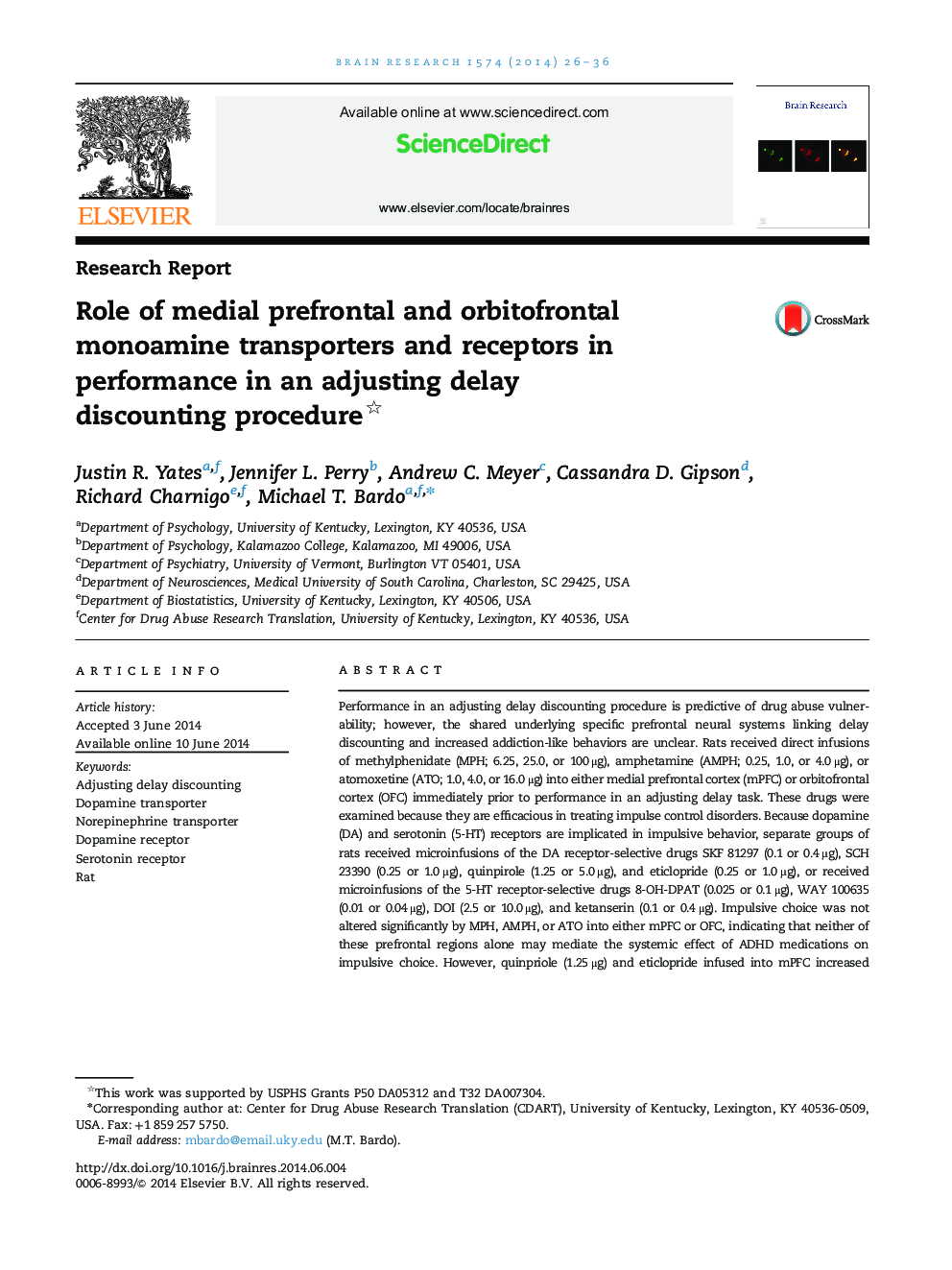| کد مقاله | کد نشریه | سال انتشار | مقاله انگلیسی | نسخه تمام متن |
|---|---|---|---|---|
| 4324197 | 1613865 | 2014 | 11 صفحه PDF | دانلود رایگان |

• Administration of ADHD medications into mPFC or OFC does not alter impulsive choice.
• Stimulating or blocking DA D2 receptors within mPFC increases impulsive choice.
• Stimulating 5-HT1A receptors within OFC increases impulsive choice.
Performance in an adjusting delay discounting procedure is predictive of drug abuse vulnerability; however, the shared underlying specific prefrontal neural systems linking delay discounting and increased addiction-like behaviors are unclear. Rats received direct infusions of methylphenidate (MPH; 6.25, 25.0, or 100 μg), amphetamine (AMPH; 0.25, 1.0, or 4.0 μg), or atomoxetine (ATO; 1.0, 4.0, or 16.0 μg) into either medial prefrontal cortex (mPFC) or orbitofrontal cortex (OFC) immediately prior to performance in an adjusting delay task. These drugs were examined because they are efficacious in treating impulse control disorders. Because dopamine (DA) and serotonin (5-HT) receptors are implicated in impulsive behavior, separate groups of rats received microinfusions of the DA receptor-selective drugs SKF 81297 (0.1 or 0.4 µg), SCH 23390 (0.25 or 1.0 µg), quinpirole (1.25 or 5.0 µg), and eticlopride (0.25 or 1.0 µg), or received microinfusions of the 5-HT receptor-selective drugs 8-OH-DPAT (0.025 or 0.1 μg), WAY 100635 (0.01 or 0.04 μg), DOI (2.5 or 10.0 μg), and ketanserin (0.1 or 0.4 μg). Impulsive choice was not altered significantly by MPH, AMPH, or ATO into either mPFC or OFC, indicating that neither of these prefrontal regions alone may mediate the systemic effect of ADHD medications on impulsive choice. However, quinpriole (1.25 μg) and eticlopride infused into mPFC increased impulsive choice, whereas 8-OH-DPAT infused into OFC decreased impulsive choice. These latter results demonstrate that blockade of DA D2 receptors in mPFC or activation of 5-HT1A receptors in OFC increases impulsive choice in the adjusting delay procedure.
Journal: Brain Research - Volume 1574, 29 July 2014, Pages 26–36